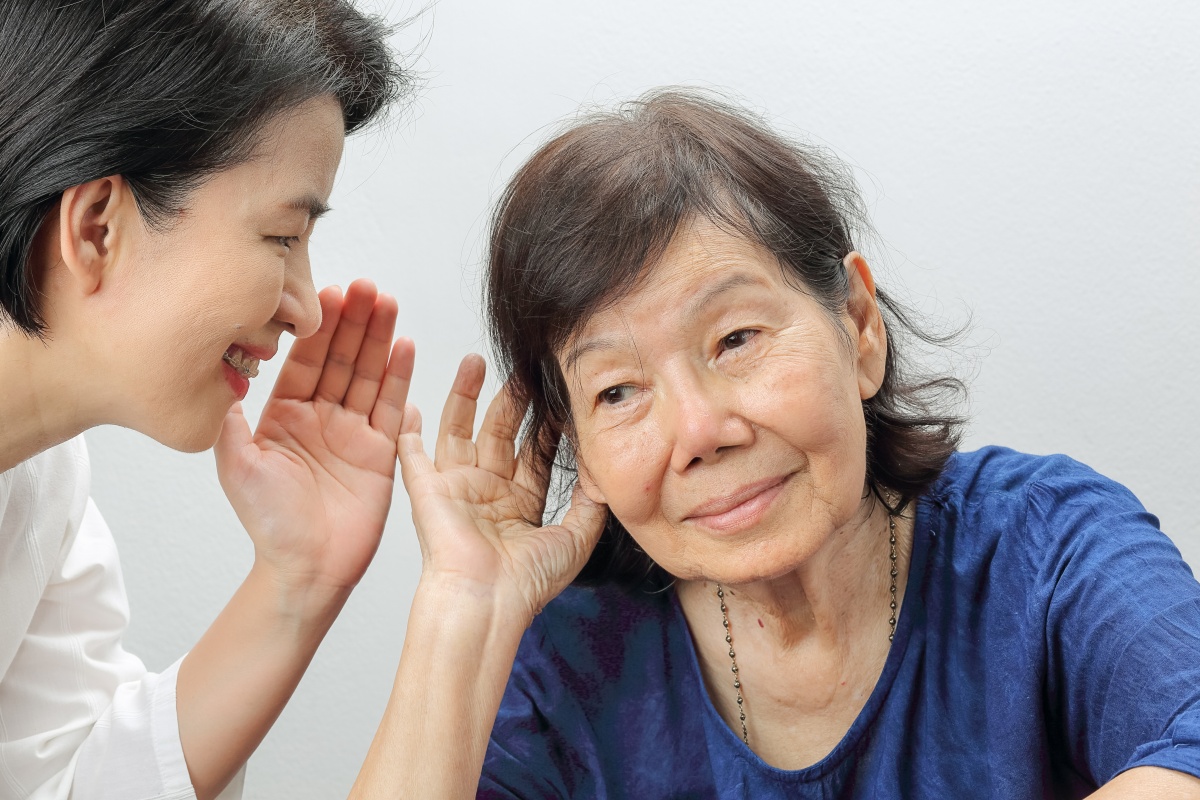More than half of Americans over 75 have some hearing loss. It’s a stark statistic but not necessarily a surprise.
What many people don’t realize is that hearing loss is rarely a stand-alone condition. In fact, it’s often tied to other health issues, and awareness of these connections can open the door to more holistic, patient-centered care and improved well-being.
The prevalence of comorbidities among aging patients, combined with the negative impact that unaddressed hearing loss can have on an individual’s social, psychological and emotional status, intensifies the need for skilled nursing facilities to understand the relationship of hearing loss to other health conditions. In doing so, they can more successfully deliver comprehensive care and amplify quality of life for all residents.
Hearing loss and cardiovascular disease
Research over more than six decades has established that hearing and cardiovascular health often correspond. A well-functioning cardiovascular system supports hearing, especially among older adults, while impaired blood flow to the ear can damage various parts of the auditory system.[1]
The adverse correlation between cardiovascular disease and hearing shows up when assessing risk. A recent study found that the presence of two or more of the cardiovascular disease risk factors of diabetes, smoking, hypertension, and high cholesterol or statin use pushed up the odds of hearing loss by 92%.[2] Other research suggests that strong correlations may make audiogram pattern assessment a screening test for risk of certain cardiovascular events.[3]
Hearing loss and diabetes
Just as diabetes can lead to nerve damage in a person’s feet, eyes and other parts of the body, it can damage nerves in the ears as well. Elevated blood glucose levels are believed over time to harm both nerves and small blood vessels that are central to our ability to hear. The data indicates that hearing loss is twice as common in people with diabetes, and even those with prediabetes carry a 30% higher risk of hearing loss.[4]
Diabetes afflicts more than one quarter of Americans 65 and older, making awareness within skilled nursing facilities of the link to hearing loss particularly pertinent. Since both conditions contribute to functional decline, caregiver attentiveness is important. Equally valuable is a care model that involves audiology professionals working in collaboration with the skilled nursing staff and other medical specialties to deliver regular hearing monitoring and care. That approach can enhance well-being for the resident and better ensure that the already heavy burden of diabetes doesn’t become even greater.
Hearing loss and other significant health risks and conditions
Evidence continues to mount that hearing impairment is correlated with a host of other health issues. A few notable examples include:
- Mental health. Close ties between hearing loss and depression, cognitive decline and dementia have gained considerable attention and have been well documented over the past decade. We will explore key issues related to this vital subject in future articles.
- Chronic kidney disease. This condition is frequently seen among residents of skilled nursing facilities. Various observational studies have shown association between kidney function issues and hearing loss, and one study concluded that “testing for hearing should be included in the integrated management of patients” with kidney disease.[5]
- Fall risk. A significant assessment of individuals aged 40-69 showed that relatively small levels of hearing loss tripled accidental fall risk, and every additional 10 decibel hearing decline boosted risk by 140 percent.[6]
Implications for caregivers
Hearing loss clearly does not exist in a vacuum. What we discover about someone’s hearing health can provide invaluable information for guiding care that’s most appropriate for the individual. Attention to the interplay of hearing with other serious and common conditions enhances knowledge for caregivers.
We know hearing loss frequently goes undetected or untreated in the elderly and that hearing health plays a central role in whole health. In skilled nursing communities, it’s important to collaborate with audiology professionals to provide in-house monitoring and treatment. These professionals are alert to the various correlated conditions and can recommend appropriate specialist referrals.
All told, providing patient-centered care includes fully understanding the individual’s ability to hear and communicate. Aria Care Partners is committed to working collaboratively with nursing communities to tackle the audiological needs of patients so every resident receives the comprehensive, compassionate care they deserve.
Click to Download a .PDF copy of this article.
Bibliography
[1] R. Hull and S. Kerschen, “The Influence of Cardiovascular Health on Peripheral and Central Auditory Function in Adults: A Research Review,” American Journal of Audiology, June 1, 2010.
[2] R. Baiduc, J. Sun, C. Berry, et al., “Relationship of Cardiovascular Disease Risk and Hearing Loss in a Clinical Population,” Scientific Reports, January 30, 2023.
[3] D. Friedland, C. Cederberg, S. Tarima, “Audiometric Pattern as a Predictor of Cardiovascular Status: Development of a Model for Assessment of Risk,” Laryngoscope, March 2009.
[4] Centers for Disease Control and Prevention, “Diabetes and Hearing Loss.”
[5] W. Liu, Q. Meng, Y. Wang, et al. “The Association Between Reduced Kidney Function and Hearing Loss: A Cross-Sectional Study. BMC Nephrology, April 22, 2020.
[6] Z. Shapiro, “Hearing Loss and the Increased Risk of Falls,” The ASHA LeaderLive, March 1, 2019.
 Home Page
Home Page Home Page
Home Page

 Share to Twitter
Share to Twitter
 Share to Linked In
Share to Linked In

